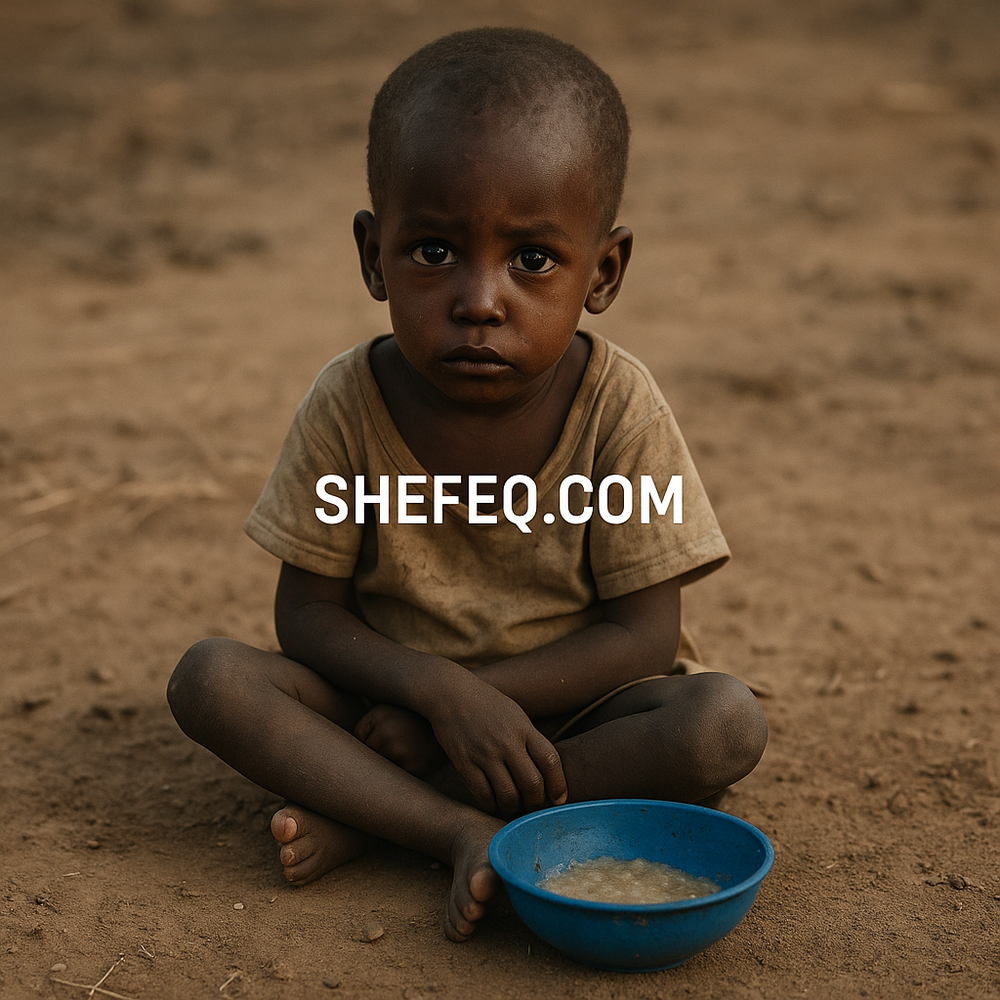I. Prologue: If Tears Taste Salty, Why Is Water More Precious?
In the middle of the black earth, a little child kneels.
No spoon in hand — just trying to taste a drop of porridge spilled into a bowl.
Silent. But this is a loud kind of hunger.
Ears do not hear — because the distance is too great.
But the question remains:
Why doesn’t the starving voice of African children reach the West?
II. Africa – The Unheard Continent
Africa seems like two worlds:
-
On one side — rich soil, natural resources.
-
On the other — hunger, disease, and silent infants.
According to UN data from 2024:
-
Every day, 15,000 children die from hunger.
-
Over 45 million children face food insecurity.
-
In more than 30 countries, children's rights are practically non-existent.
Yet the world still pays more attention to military contracts than to children’s lives.
III. Hunger That Echoes Louder Than Water
Water has a sound — trickling, flowing, raging.
But a starving child’s voice is often unheard.
-
They do not scream — they have no energy.
-
They do not cry — they have no tears left.
-
They do not speak — their tongue holds no food, only silent prayer.
This sound is not a statistic — it is a test of conscience.
IV. The Portrait of a Starving Child
Cameroon, Somalia, Sudan, Chad, Malawi… every country paints a portrait of a child:
-
Their eyes follow food boxes, not the sun.
-
Instead of playing, they queue in refugee camps.
-
Instead of learning, they carry water.
-
When talking about the future — they fall silent.
A childhood without childhood — humanity’s deepest tragedy.
V. Where Is the West?
If millions watch a celebrity’s outfit online,
Why does a child's death get scrolled past?
What is the West doing?
-
Yes, there are aid funds.
-
Yes, there are food programs.
But the issue is not aid — it’s the system.
The neocolonial system dried Africa from within
and masked it from outside with sweetened campaigns.
VI. The Walls That Muffle Hungry Voices
The West does not hear because:
-
Media is manipulated.
Africa only gets attention during crises. -
Political interests diverge.
A child’s life is cheaper than an oil deal. -
Cultural distance is wide.
The child’s voice feels like it’s “not one of us.”
Thus, a wall of silence is drawn —
on one side hunger, on the other, a screen.
VII. Fighting for Children – We Need Systems, Not Symbols
The truth is:
-
Symbolic aid campaigns are often cosmetics for the conscience.
-
NGOs like Doctors Without Borders and UN programs are helpful — but not enough.
What is needed?
-
An agricultural revolution within Africa
-
Support for education and infrastructure
-
Partnership, not exploitation, from the West
-
Protection, not erasure, of local initiatives
VIII. Azerbaijan’s View on Africa
Azerbaijan participates in international aid programs.
But public awareness remains low.
Suggestions:
-
Introduce “Global Justice” courses in schools
-
Encourage objective media reporting on Africa
-
Promote youth participation in African volunteer programs
Because if a child is hungry, the world is not full.
IX. If We Could Photograph Silence…
Question: How do you capture the voice of a starving child?
-
No food in the frame.
-
No smile.
-
Just a gaze.
A gaze that questions the conscience of the world.
Not taken by a photographer,
but by the human inside each of us.
X. Epilogue: Africa’s Colorful Soul
Africa is not black.
There is:
-
Laughter,
-
Hope,
-
Resistance.
But to hear it, one must listen with conscience.
Final Question to the Reader:
Do you think the voice of a starving child deserves to be heard louder,
or should it remain quieter than water?
Your reaction can amplify this silence. Share your thoughts — SHEFEQ.COM is listening.
Be a Voice Too – Leave a Comment
What did this article make you think?
-
Can you hear the voice of a starving child?
-
How does thinking about a hungry child in Africa make you feel?
-
How do you think we can end this silence?
Write your comment — maybe your voice becomes hope for a child.
SHEFEQ.COM is listening — don’t be silent, speak up.

